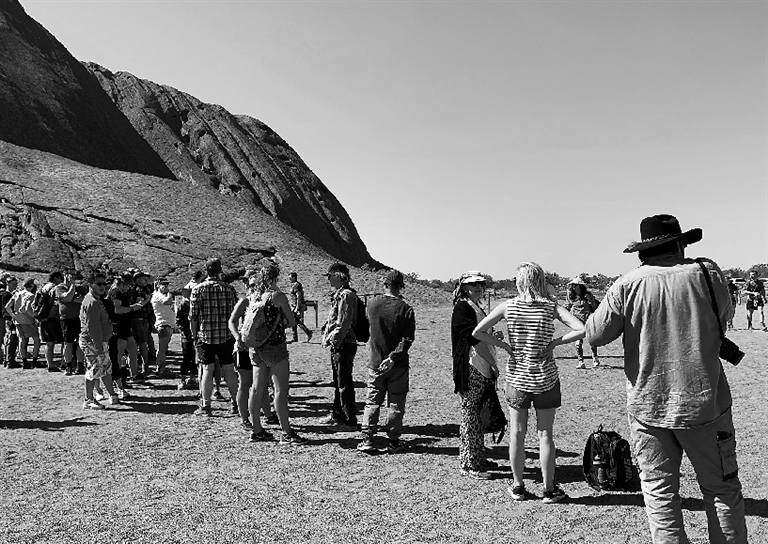
AUSTRALIA’S Uluru was permanently closed to climbers Friday evening to meet the wishes of Aboriginal people who hold the red monolith sacred, but hundreds of tourists scaled it in the final hours before the ban. With the last-ever climbers due back by sunset, rangers shut the entry gates to the world-famous site also known as Ayers Rock. The ban, first announced in 2017, had long been sought by the traditional Aboriginal owners of the land, the Anangu, whose connection to the site dates back tens of thousands of years. There were already signs at the base of the rock imploring visitors not to climb it, but these were not often heeded, especially in recent months as a surge of tourists made last-minute ascents. Despite the physical dangers — including the infamous 1980 killing of a baby by a dingo at a local campsite — Uluru became one of Australia’s most popular and recognized tourist destinations. More than 395,000 people visited the park in the 12 months to June 2019, according to Parks Australia — about 20 percent more than the previous year. Around 13 percent of those who visited during that period made the climb, park authorities said. Uluru has great spiritual and cultural significance to indigenous Australians, and the Anangu people held a ceremony Saturday to mark the climbing ban. Indigenous Affairs Minister Ken Wyatt likened the recent increase in tourists climbing Uluru to “a rush of people wanting to climb over the Australian War Memorial.” Traditional owners have long encouraged people to refrain from climbing the site for its cultural significance, to protect it from further environmental damage and to ensure visitors’ safety. Tackling Uluru’s sandstone slopes has not been an easy exercise, and at least 35 people have died attempting the climb. It towers some 348 meters and summer temperatures often hit 45 degrees Celsius. Saturday marked 34 years since that the park’s title was handed back to the traditional owners.(SD-Agencies) | 
